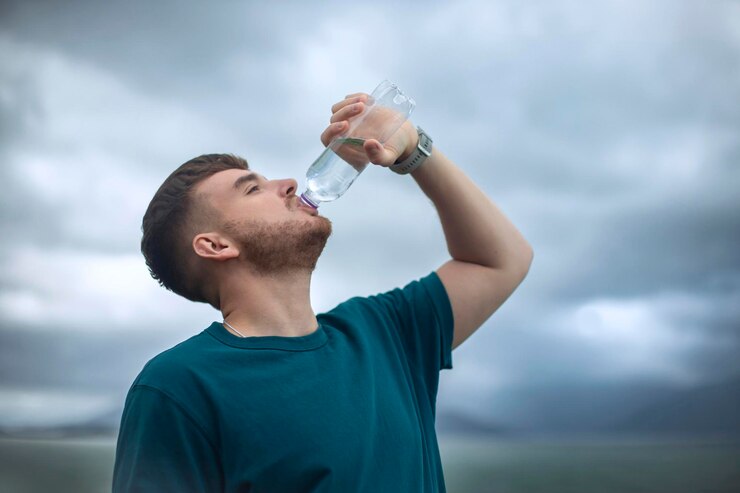H2O is key to keeping our bodies in balance. Even just a 1% change in the amount of water in our bodies can negatively impact our health.
How H2O supports your body
Water plays a vital role in the physical processes inside our bodies. It’s what regulates our bodies and promotes good physical function. Staying hydrated helps to:
- Improve circulation, which delivers much-needed nutrients to our cells.
- Boost muscle function for maximum athletic results.
- Regulate blood pressure, which prevents your heart from working too hard.
- Regulate body temperature, which helps us to keep cool.
- Remove bacteria and toxins from our system.
- Promote digestion, which helps to absorb key nutrients.
- Keep joints lubricated.
In this way, water is a superhero compound that supports the body. You can imagine that if you don’t stay hydrated, these positive effects are lost.
How exercise affects the amount of water in our bodies
When you exercise you sweat, which means you lose water. This is especially true in hot and humid climates. It’s important that you replace lost water, so that your body continues to function in an optimal way. Experts recommend hydrating before, during and after your workout, so don’t skip the water bottle when hitting the gym.
How dehydration hurts your muscles and joints
Dehydration can make you injury-prone because it takes away key nutrients from your muscles and joints. Dehydration makes it more likely that you’ll experience:
- Inflammation: Without water, your muscles can’t clear away scar tissue. This means the area becomes inflamed and painful.
- Joint wear and tear: Repairing scar tissue is impossible without water. Your recovery will be longer and more painful if you’re dehydrated. Your body won’t be able to generate new cells.
- Cramps: Your muscles need water and the nutrients in it to work properly. Cramps are a common symptom of dehydration caused by a lack of key electrolytes.
- Joint friction: Water is a natural lubrication for your joints, since cartilage is made almost entirely from water. Without it, your joints don’t maintain the right amount of cushion to move, which means they become “sticky” and painful.
- Fatigue: Without water, your body doesn’t have the fuel it needs to recover after physical activity, which can cause you to feel weak and tired.
All these impacts can cause injury because they weaken muscles, cause pain and decay joints. Besides these physical consequences, you may feeling tired can mean you’re more likely to make a mistake during your workout or not perform at your best.
How to stay hydrated during your workout
If you want to keep your muscles functioning at their best, hydration should be your #1 priority. This prevents injuries by ensuring that your muscles and joints don’t experience inflammation, wear and tear, cramps, friction or fatigue.
Of course, if you sweat a lot during your workout, you’ll want to replace your water content with even more liquids. It’s a good idea to find out your salt-to-water ratio, which is a way of measuring how much you sweat and how much you maintain hydration during exercise. This will give you a better sense of how much water to drink in order to keep your body in balance.
How hydration prevents injury
Hydration is a major part of injury prevention, according to the expert chiropractors in Juneau. That’s because dehydration can weaken our muscles and make them inflamed and fatigued. Be sure to fuel your muscles for success by staying hydrated, so that your body runs smoothly and injuries from joint friction or exhaustion are prevented.
Final hydration tips
If you struggle to stay hydrated during the day, try these hydration tips:
- Drink water even when you’re not that thirsty.
- Invest in a water bottle that you feel happy about carrying around.
- Pack your diet with water-rich foods, such as watermelon and other fruits.
- Set a reminder to drink up every two hours, just in case you haven’t felt thirsty.
- Add fun flavors to your water – like cucumber or lemon – to motivate yourself to hydrate.
At the end of the day, staying hydrated doesn’t just help prevent injuries, it also keeps your body running optimally. By drinking up, we have more energy and avoid the pitfalls of dehydration, such as cramps, inflammation and joint wear and tear. Reach for the H2O and stay in the game!
